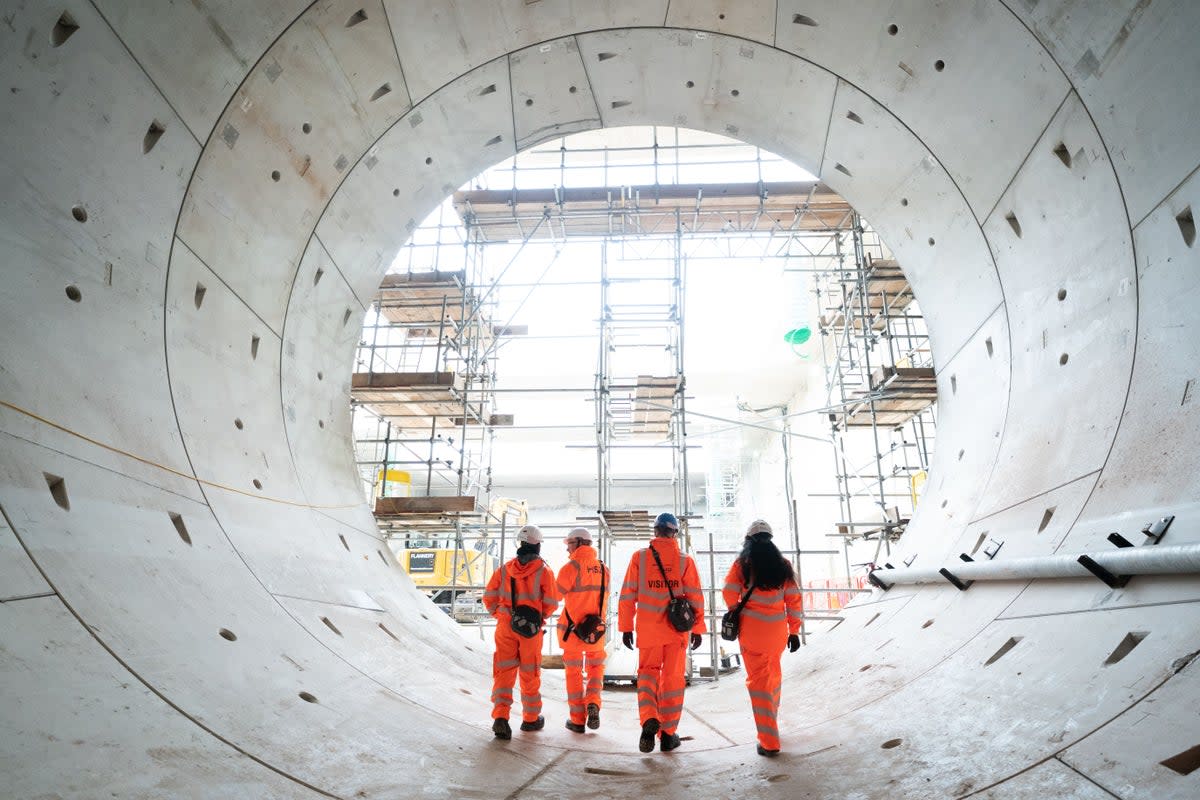Voices: Redirecting HS2 funds to London is another slap in the face for northerners like me

This country loves to use the phrase “social mobility” without really understanding what it means in practice. In theory, anybody in the UK can bring about a change in their economic circumstances simply by working hard, trying their best and having a can-do attitude.
But in practice, that isn’t how it works. In practice, being socially mobile requires one to be physically mobile. You can have the best grades, the best CV and the best set of skills in the world, but if you can’t get to the economic centres where the jobs are concentrated, then you’re going to be stuck scraping for leftovers in the five square mile area where you grew up – along with everybody else on your estate.
That’s why the HS2 project was such an exciting proposition for northerners like me. I grew up on a council estate in Salford, and I can tell you from first-hand experience that the greatest social evil inflicted on myself and people I grew up with was being left to rot in a tiny, dying ecosystem with zero lifelines. HS2 would, if successful, have provided those lifelines, and presented people with opportunities that simply do not exist at present by connecting them to the economic and cultural hubs from which they are currently stranded.
It didn’t happen, obviously, and if we’re being honest with ourselves we were naive for ever permitting ourselves to pretend that it would.
There is fine line, though, between incompetence and malice, and the recent announcement that money saved by scrapping HS2 will be pumped into infrastructure projects in London borders on the latter.
In a now-deleted social media post, the UK Department of Transport posted a graphic announcing that £235m will be spent on fixing London potholes – a move made possible due to the £8.3 billion of extra funding made available by the scrapping of HS2. Proudly displayed in the lower left of the graphic is the branding “A Network North project”. It would be funny, if it wasn’t so wildly insulting.
Manchester mayor Andy Burnham summed it up nicely when he tweeted: “Network North seems to include everywhere – except the North.” In fact, he could probably extend that even further: the government believes its responsibilities extend to everywhere in the UK – except the North.
This isn’t even the first time the government has done something like this. Remember when Rishi Sunak bragged about diverting money from deprived urban areas towards towns that already had plenty of money? Their priorities couldn’t be clearer.
Living in the UK as a northerner is often an uncanny experience, particularly if you also happen to be working class. We are constantly confronted with a version of Britain that bears no resemblance to our surroundings. We are asked to become invested in people and places that, for us, may as well exist on Mars for all the impact they seem to have on our lives. We go abroad, and are asked about a version of the UK that barely exists for us, because it’s the only one that receives any attention. How is it that an entire half of a country, with its own culture, people and customs, becomes an afterthought?
The devolved nations face a similar crisis, and I wouldn’t want to overlook those, but at the very least they are devolved. They have governments that can take real (if often limited) action regarding local issues. Health and justice are both fully devolved – when it comes to the things that really matter, the people there have a say.
Not so for the north, which is often treated like a superfluous extension of the “real”, London-centric England. At best our leaders treat it with pity, and at worst with contempt. This latest redirecting of crucial funding to the nation’s already-amply funded capital is a stark and sickening example of the latter.

 Yahoo News
Yahoo News 
